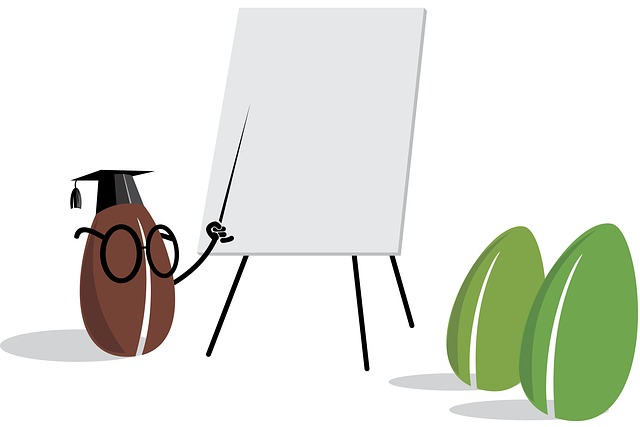Professional translation of Lecture Notes and Teaching Materials for visa processing is vital to ensure accuracy, preserve academic authenticity, and meet legal requirements. Skilled translators with subject matter expertise and cultural sensitivity are crucial to avoid rejections and facilitate successful international student applications. Strategic approaches using glossaries, consistent formatting, and memory tools enhance efficiency while maintaining precision in technical translations.
In today’s global academic landscape, students from around the world seek educational opportunities abroad. Accurate translation of lecture notes and teaching materials is a vital step in this process, impacting visa applications significantly. This article explores the intricate journey of translating these documents for visa processing, highlighting the importance of professional services. We’ll delve into key considerations like understanding visa requirements, overcoming translation challenges, adopting best practices, ensuring cultural sensitivity, and implementing efficient strategies for lecture notes and teaching materials alike.
- Understanding the Visa Processing Requirements
- The Role of Accurate Translation Services
- Challenges in Lecture Notes and Teaching Material Translation
- Best Practices for Translating Educational Documents
- Ensuring Cultural Sensitivity and Precision
- Strategies for Efficient and Effective Translation Process
Understanding the Visa Processing Requirements
Understanding the Visa processing requirements is crucial when it comes to international education. For students aiming to study abroad, accurate and official translations of their academic documents are essential. This process involves more than just converting words from one language to another; it demands precision and adherence to specific standards to ensure the authenticity and credibility of the originals.
When it comes to Lecture Notes and Teaching Materials, translation services must capture not only the meaning but also the context, ensuring that technical terms, educational concepts, and cultural nuances are preserved. This is because visa officers rely on these translated documents to evaluate the academic qualifications and intentions of applicants. Therefore, choosing a professional translation service specialized in legal and academic documentation is vital to streamline the visa application process.
The Role of Accurate Translation Services
Accurate translation services play a pivotal role in facilitating seamless communication during visa processing, particularly for international students aiming to study abroad. When it comes to Lecture Notes and Teaching Materials, precision is paramount. These documents are not just words on paper; they represent the essence of academic knowledge transfer, containing intricate concepts, theories, and practical applications that prospective students need to grasp.
Therefore, professional translators must possess a deep understanding of both the source and target languages to convey these ideas accurately. They must also be well-versed in the specific field of study to ensure technical terminology is translated correctly. This meticulous process ensures that international students receive clear and comprehensive lecture notes and teaching materials, enhancing their learning experience and increasing the likelihood of successful visa applications.
Challenges in Lecture Notes and Teaching Material Translation
The process of translating lecture notes and teaching materials for visa processing is not without its complexities. One significant challenge lies in maintaining accuracy while capturing the subtle nuances and academic terminology specific to various fields of study. These documents often contain specialized jargon, complex concepts, and intricate logical structures that demand a deep understanding from translators. Inaccurate or inconsistent translations can lead to misunderstandings, miscommunications, and even rejections during visa applications.
Moreover, deadlines play a crucial role in the visa application process. Translators must efficiently manage their time while ensuring high-quality output, especially when dealing with lengthy and detailed lecture notes and teaching materials. Effective communication between educators, translators, and visa authorities is essential to overcome these challenges, ensuring that translated documents accurately represent the original content and meet the stringent requirements of immigration officials.
Best Practices for Translating Educational Documents
When translating lecture notes and teaching materials for visa processing, accuracy is paramount. It’s crucial to employ professional translators who are fluent in both the source and target languages, with a deep understanding of educational terminology. Utilizing specialized glossaries and consistent formatting ensures coherence across all documents.
Additionally, contextual awareness is essential. Translators should grasp the academic context and purpose of each document, avoiding literal translations that might distort meaning. Collaboration between educators and translators can help identify nuanced terms and ensure the translated materials align with the original intent, ultimately facilitating a smoother visa application process.
Ensuring Cultural Sensitivity and Precision
When translating lecture notes and teaching materials for visa processing, cultural sensitivity is paramount. Translators must go beyond literal word-for-word substitutions to grasp the context and intent behind the original content. This involves understanding the cultural nuances of both the source and target languages to avoid misunderstandings or inappropriate interpretations. For instance, idiomatic expressions, metaphors, or references that hold specific meanings in one culture might not resonate in another.
Precision is equally critical. Accurate translation ensures that the translated materials maintain their academic integrity and convey exactly what the original lecture notes and teaching materials aim to teach. This requires a deep understanding of the subject matter and the ability to translate technical terminology with consistency. Skilled translators who are native speakers or have expertise in both languages can deliver precise translations, ensuring that students’ visa applications present them in the best light and accurately represent their academic pursuits.
Strategies for Efficient and Effective Translation Process
The translation process for lecture notes and teaching materials requires a strategic approach to ensure accuracy and efficiency, especially in visa processing where precision is paramount. One key strategy involves employing professional translators who are not only fluent in both languages but also possess educational backgrounds or expertise in the subject matter. This specialized knowledge allows for a deeper understanding of technical terms and pedagogical nuances, resulting in more precise translations.
Additionally, utilizing translation memory tools can significantly enhance efficiency. These software programs store previously translated segments, ensuring consistency throughout the materials. They also enable faster turnaround times by reusing existing translations, thereby reducing the need for back-translation or multiple revisions. This method not only saves time but also maintains the integrity of the original content, making it ideal for handling large volumes of lecture notes and teaching materials.
Accurate translation of lecture notes and teaching materials is not just a service, but a strategic necessity for international students’ visa processing. As educational content becomes increasingly globalized, professional translation services play a pivotal role in ensuring that documents meet the strict requirements of various countries. By following best practices that emphasize cultural sensitivity and precision, institutions can streamline their processes, facilitating smoother paths to education for students worldwide. This approach not only enhances the efficiency of visa applications but also fosters an inclusive learning environment on a global scale.



